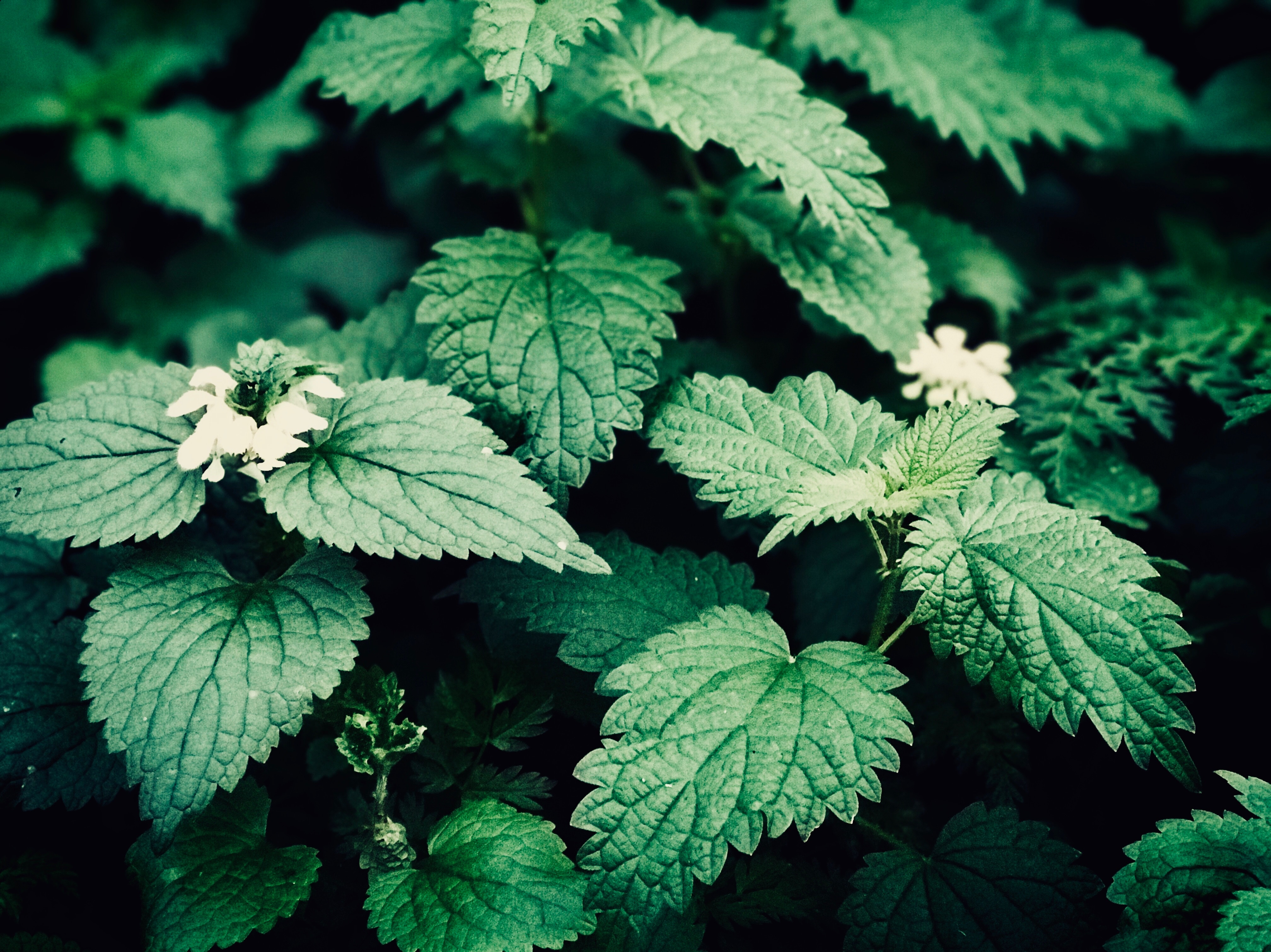19 Apr Tea Love: Nettle
Herbal medicine is one of the treatment options I use in my practice and I find it so exciting to see the amazing benefits my patients can experience from a simple herbal tea. In my Tea Love segments, I hope to share with you some of the wonderful healing benefits of the common herbs I use with my patients! This week I’m going to share information about Urtica dioica, commonly known as nettle or stinging nettle. It is the perfect herb to have in your tea cabinet during allergy season (and all year round!). Let me tell you more about it!
Nettle (Urtica dioica)
Nettle is a perennial herb that grows in Canada any many other countries around the world. It has benefits as both a food source and a medicinal plant. Although you need to be careful when touching it in the wild (so gloves must be worn when picking it!), the stinging effect goes away once cooked. Nettle is rich in many nutrients, including vitamin C, iron, potassium, and calcium. It is generally taken internally as a tea or tincture when using it for its medicinal purposes.

Benefits and Uses
Seasonal allergies: Nettle’s astringent properties help clear up excess mucous caused by environmental allergies.
Eczema: Nettle’s diuretic effect has a gentle detoxifying action, which can be beneficial for eczema and other skin rashes.
Pregnancy/Iron deficiency: Nettle leaf is a source of iron and can be used to increase your dietary intake of iron. It contains a variety of other nutrients and this nutritive/tonic action supports overall health.
The root of the nettle plant can also be used for its medicinal purposes. It is most commonly used for treating benign prostatic hyperplasia (BPH). It can also be used for polycystic ovarian syndrome (PCOS) due to its positive effects on blood sugar levels.

Preparation
I love recommending nettle leaf as a tea. It can also be taken in tincture or capsule form but it’s really nice as a herbal tea. It has a gentle flavour and I find most patients are able to tolerate and enjoy it, even children! You can purchase nettle leaf tea in a tea bag form or as a loose-leaf herb.
To prepare: Add 1 serving of nettle leaf tea (usually either 1 tea bag or 1 tbsp loose leaf herbs) to 1 cup of hot water and steep covered for 10-15 minutes. Enjoy!
If you’re interested in adding more flavour or added benefits, here are some options to try:
- Add 1 tsp honey and juice of ¼ lemon for added flavour and immune support.
- Combine with 1 tea bag of red raspberry leaf tea for added benefits throughout pregnancy.
- Add 1tbsp blackstrap molasses for added iron content.
- Make it iced! Double the strength of the tea (add 2 servings per 1 cup water) and pour the hot tea over a cup full of ice. Or add 4-5 servings to 1L of water, steep normally, and keep in the refrigerator overnight or until ready to serve.
Safety: Nettle has a great safety profile. It is safe for use in children, pregnancy, and breastfeeding. Due to its effect as a diuretic, use caution if you have a kidney disorder. And as always, remember to discuss any new herbal supplements or teas with your healthcare practitioner prior to use.
Are you wondering if nettle leaf tea is right for you? Check out my clinics page to find out how we can work together one-on-one. Also, make sure you’ve read my previous blog post about preventing and treating seasonal allergies.

